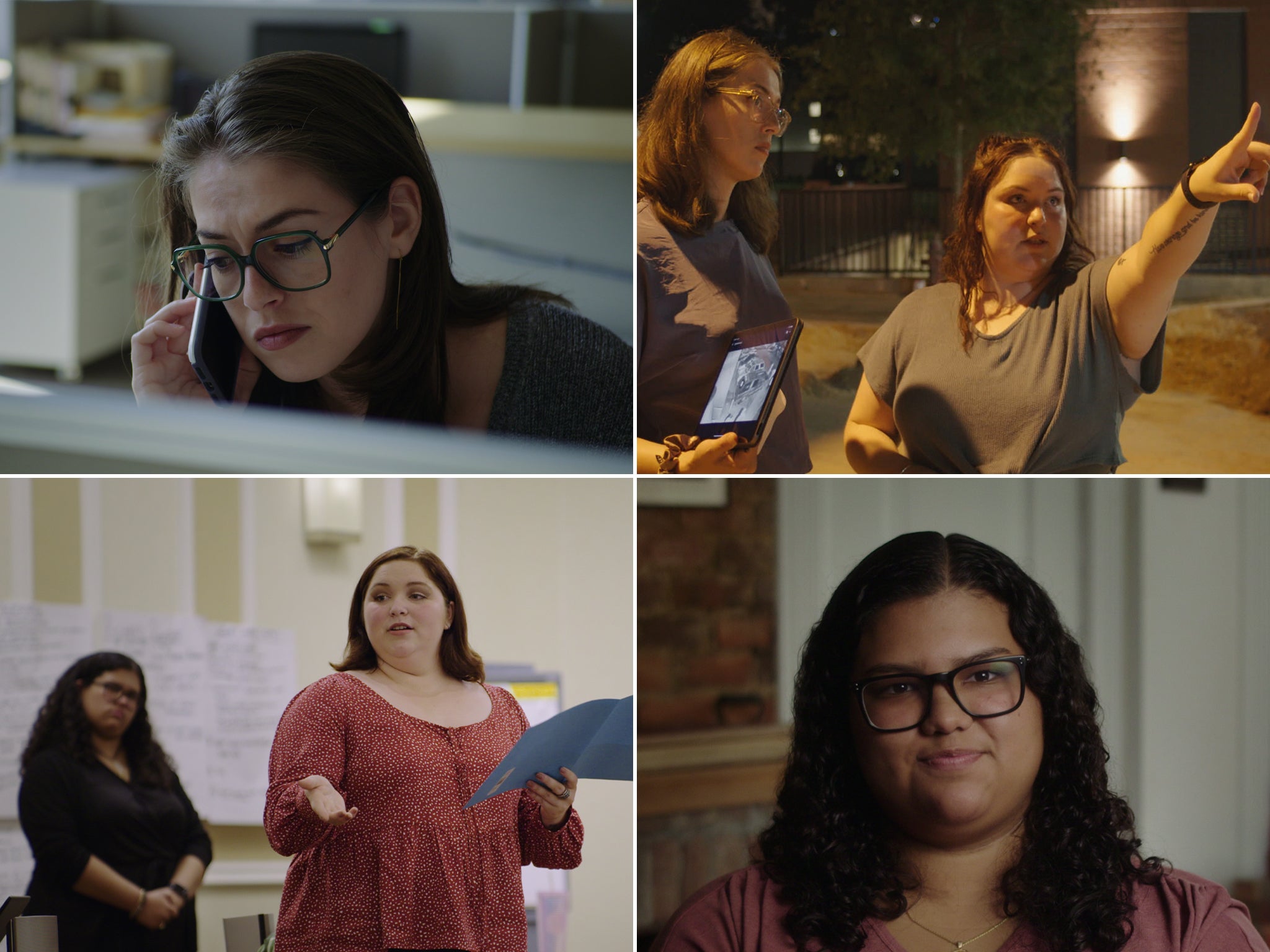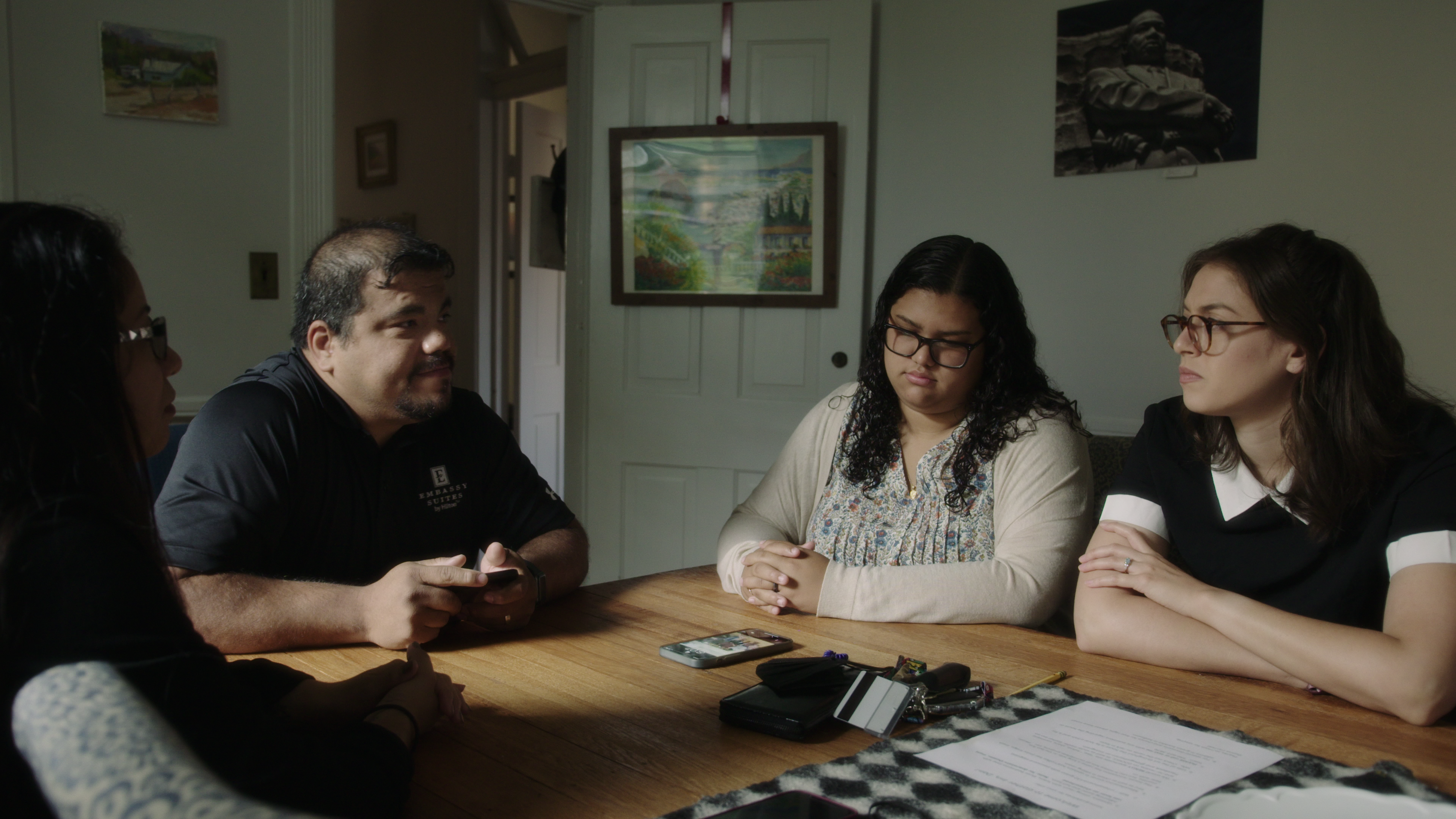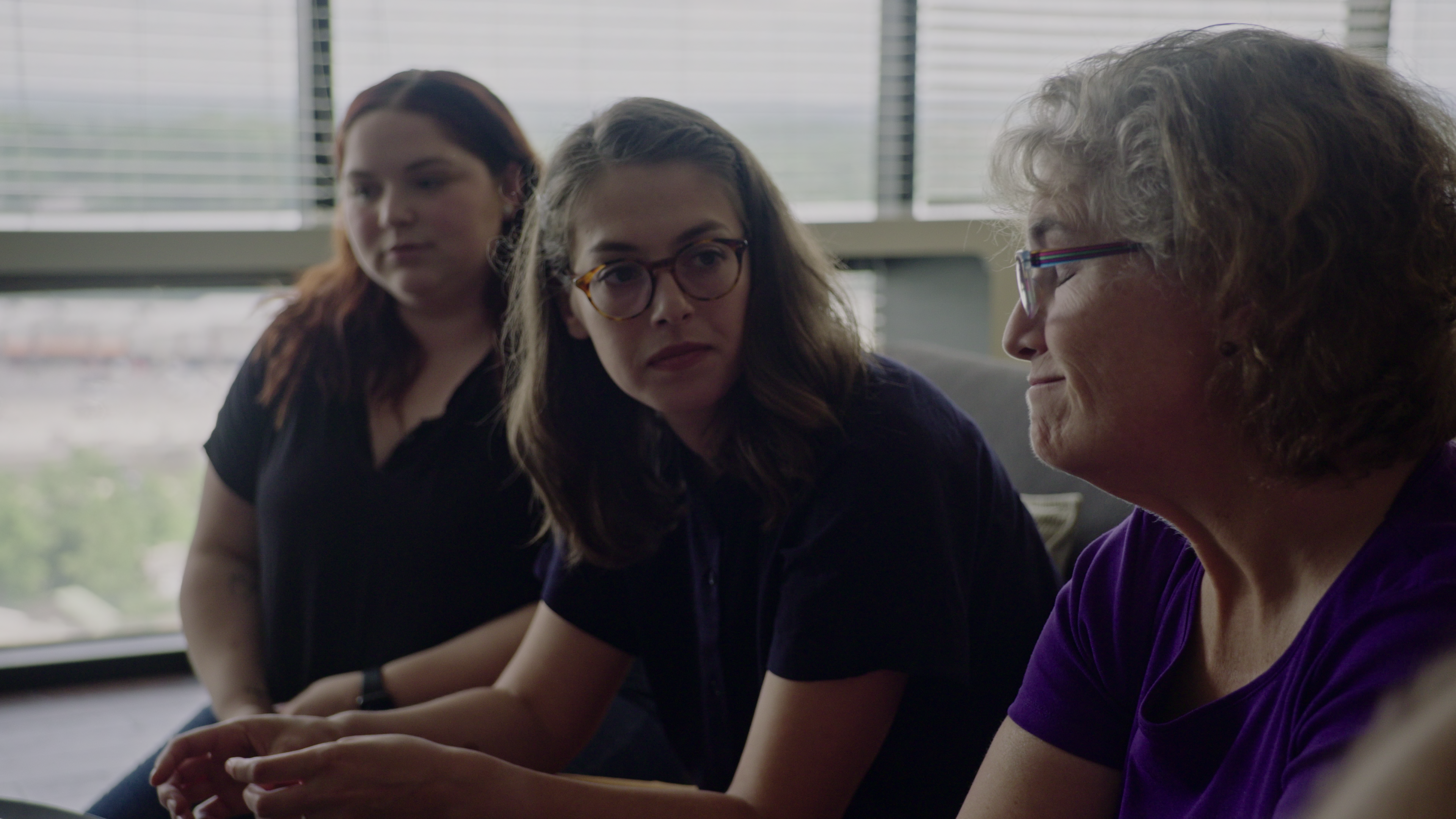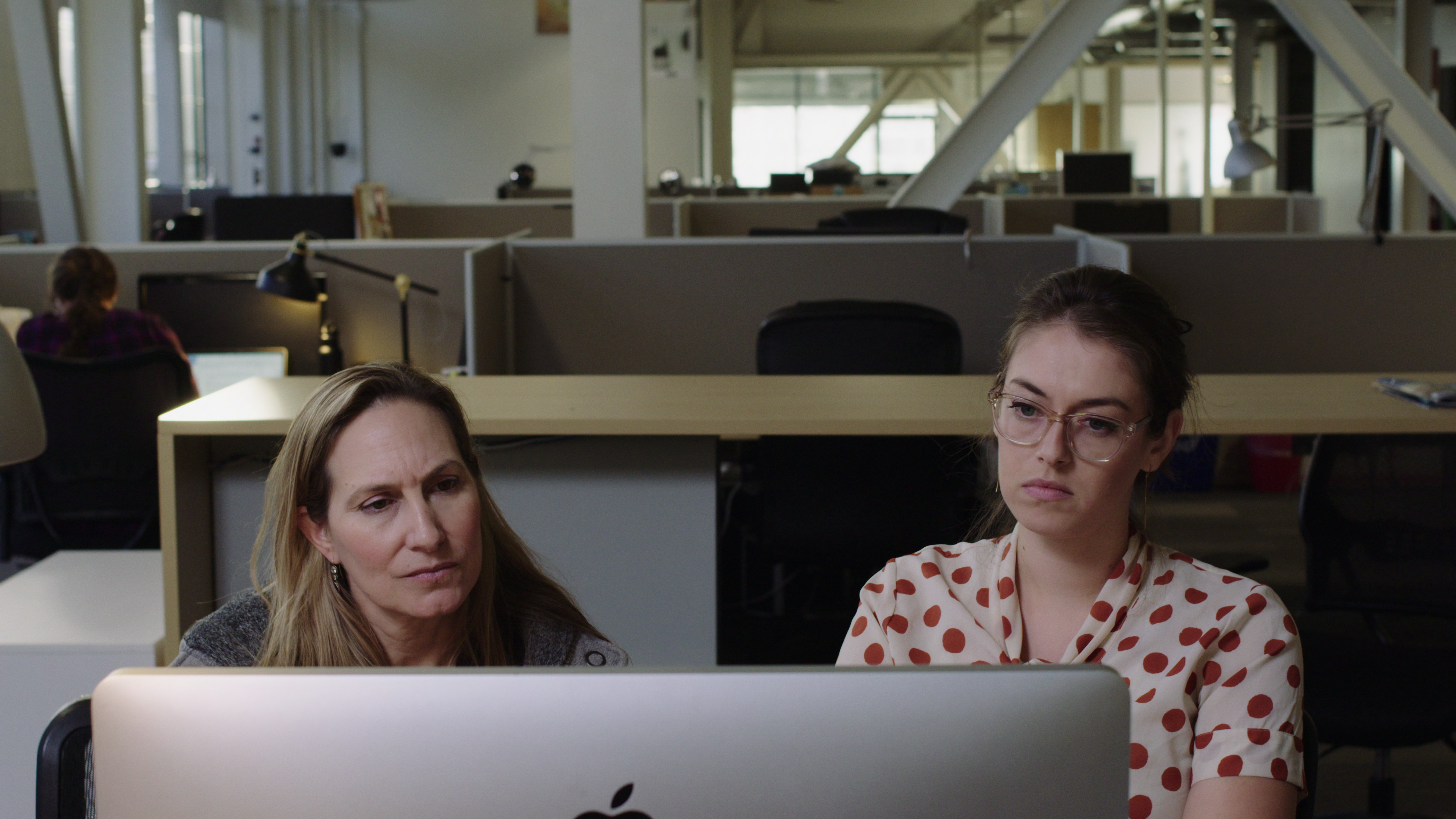These women were raped and reported the crimes. America’s police turned them into suspects
A new Netflix documentary sheds light on the cases of women who went to the police and reported being assaulted, only to be accused of false reporting. Clémence Michallon speaks to journalist Rachel de Leon, who investigated their stories


Your support helps us to tell the story
From reproductive rights to climate change to Big Tech, The Independent is on the ground when the story is developing. Whether it's investigating the financials of Elon Musk's pro-Trump PAC or producing our latest documentary, 'The A Word', which shines a light on the American women fighting for reproductive rights, we know how important it is to parse out the facts from the messaging.
At such a critical moment in US history, we need reporters on the ground. Your donation allows us to keep sending journalists to speak to both sides of the story.
The Independent is trusted by Americans across the entire political spectrum. And unlike many other quality news outlets, we choose not to lock Americans out of our reporting and analysis with paywalls. We believe quality journalism should be available to everyone, paid for by those who can afford it.
Your support makes all the difference.In November 2015, Emma Mannion went to the hospital. She had just told her mother she’d been raped, and was there to undergo exams following the assault.
In Victim/Suspect, a new Netflix documentary, Mannion says there was no discussion of whether she wanted to file a report.
“It was just, ‘We’re here to talk about your rape,’” Mannion, who was a student at the University of Alabama at the time, says in the documentary. Three days later, she says she was asked to go to the police station to talk more.
A video shown in Victim/Suspect features a police officer confronting her about perceived inconsistencies in her report of the alleged assault. Mannion didn’t think too much of it at first.
“I was raised to respect and trust authority,” she says in the documentary. “I understood him wanting me to walk through my story again. I understood him asking clarifying questions.”
The interview, according to Victim/Suspect, lasted over an hour and 40 minutes. Eventually, the officer accused Mannion of having filed a false report and arrested her on the spot. He instructed her to “put your hands like you’re praying” while he handcuffed her. She was sent to jail immediately.
Not long before her court date, Mannion read about Megan Rondini, another University of Alabama student. In 2015, Rondini told the police that a man from a prominent local family had raped her. Video footage in Victim/Suspect shows Rondini being interviewed for two hours. “Based on your statements to me, you said that you never resisted him,” the officer said, according to a 2017 report by BuzzFeed News. Rondini told him she did, and provided examples, according to the publication. “Look at it from my side,” the officer said, per BuzzFeed News. “You never kicked him or hit him or tried to resist him.”
In comparison, the police’s interview of the man identified by Rondini, TJ Bunn Jr, is chummy. The officer discusses fishing before moving on to Rondini’s claims. “So, y’all are having consensual sex. She never said no, she never said stop, she was completely into it,” the officer says, which Bunn echoes. When Bunn thanks the police for their “professionalism”, the officer replies: “If it was me on the other side of it, I’d want the same thing done for me.”
Bunn denied the allegations and a grand jury declined to indict him. Rondini died by suicide in February 2016. In 2021, Bunn was reported to have settled a wrongful death lawsuit filed in civil court by Rondini’s parents. When Mannion read about Rondini, she says that she asked her lawyer to look into a plea deal for her own case.
Mannion and Rondini are some of the multiple women whose cases are at the centre of Victim/Suspect. The documentary comes from the work of Rachel de Leon, a journalist at the Center for Investigative Reporting in Emeryville, California. In 2017, she heard about Nikki Yovino, who took a plea deal after being charged with falsely reporting an incident, after she’d told police she had been raped by two Sacred Heart University football players. When she spoke to Yovino and to Mannion, both women “maintained that the assaults did happen,” de Leon narrates in Victim/Suspect. And so, she kept reporting.
Looking at media reports, de Leon found more than 160 cases of people facing charges after reporting assaults, “mostly from the last 10 years”, across the US. And that was before she went beyond media reports and filed public information requests from police departments.
De Leon got the green light to turn her reporting into a Netflix documentary in early 2020. When the coronavirus pandemic struck, she feared the project would be upended, but production started in the summer of 2021. De Leon traveled to meet with Mannion and others, including Dyanie Bermeo, who was a college student when she was charged after reporting that she’d been sexually assaulted by a man falsely claiming to be a police officer. Bermeo has since been found innocent.
Her investigation revealed deep flaws in the investigations into the participants’ cases. “We’re never going to know exactly what happened in any of these assault cases, but we can look at the police investigation,” de Leon’s editor Amanda Pike says in the documentary. “Who did the police talk to? What methods did they follow? Was it thorough? Was it fair? And did they rely on the reporting victim retracting their story, or recanting?”
In the cases explored on screen, the answers are often: not enough people, methods not rigorous enough, no, no, and yes.

Carl Hershman, a retired detective at the San Diego Police Department who used to work in a sex crimes unit, is one of the most helpful voices in the documentary. “Sex crimes are always going to take longer to work than other crimes,” he says. “And if you’re already holding 30 to 40 cases, you can end up undercutting your investigative process.”
When I spoke to de Leon over Zoom, a few days before the documentary’s release, I suggested this is a realistic, but somewhat generous explanation of those cases. “I understand what you’re saying, because I kept thinking, if they really were that busy and overwhelmed, [they] could just mark [the case] as unfounded, which is not that hard,” she says. “And unfortunately, that’s another issue that some departments have experienced.”
But going through the process of charging the person who reported the assault, de Leon points out, involves multiple additional steps. Why go through them, if the goal is to file cases away as quickly as possible, due process be damned?
De Leon has two theories: one of the detectives she spoke to in the documentary “really thought he did the right thing,” she says.
“Maybe some of [the officers] are really like, ‘I really believe in this. This person lied, this is wrong, they should be punished.’ That could be what’s going on,” she says. Another, “more cynical” take, which she brings up in our conversation and which is also suggested by Hershman in the documentary, is that charging the person who first reported an assault can lead to a mention, in the corresponding paperwork, that the case was closed with an arrest – without a specification that the person who was arrested was not the alleged perpetrator, but rather, the alleged victim.
“I get an arrest and I don’t have to do a full investigation,” he says in the documentary. “That’s just another one off my desk.”

Lisa Avalos, an associate professor of law at Louisiana State University whose research has focused on criminal justice and sexual offenses as well as gender-based violence, is a participant in the documentary, and the author of a 2017 paper titled “Policing Rape Complainants: When Reporting Rape Becomes a Crime”, published in the Journal of Gender, Race and Justice. “Cases where rape complainants are charged with false reporting do not emerge in a vacuum,” she wrote. “Rather, these cases occur in a broader context, marked by police failures to adequately investigate rape – failures which occur on a widespread and systemic scale.”
Misconceptions about rape and sexual assault can circulate within police departments, and impact how reports of those crimes are treated. A 2018 study by Rachel M Venema, an associate professor of sociology and social work at Calvin University, published inViolence and Victims, included a survey of 174 officers from a mid-sized police department in the Great Lakes region. Officers were asked, “Based on your experience, what percentage of reported sexual assaults do you think are false?” and could provide a number between 0 and 100 per cent. Per the study, they vastly overestimated the rate of false reporting, most commonly answering 50 per cent, when the reality is best estimated to fall between two and eight per cent.
Other research also shows that police officers tend to disproportionately doubt reports of sexual assault. A 2017 article published in Psychology of Violence looked at the written police reports for 248 sexual assault cases and analyzed whether they relied on “rape myths.” It found that “statements in police records drew upon rape myths that denied or justified the assault on the basis of specific circumstances of the assault” and “specific characteristics of the victim.”
“Rape myth endorsement among police is evidenced in official sexual assault case records because they invoke traditional rape myths in documenting their investigations,” it concluded. “More frequently, police account for their response by blaming the victim for a poor police investigation post assault.”

De Leon hopes Victim/Suspect will be used as a tool for change. “I hope that the people who can make changes see it,” she says. “I hope police, prosecutors, judges, advocates, nurses – people who interact with victims and survivors – watch it.” She hopes that it might bring some solace to victims and survivors who reported their assault and ended up charged, blamed, or in any way traumatized by the reporting process.
“I hope they see it and feel some sense of, ‘I didn’t do anything wrong. This happens to other people, and I am not alone,’” she says. “We hope to screen the film to collages or organizations that work with victims, and fingers crossed, maybe we can go to DC to screen it for lawmakers. Get it in front of the right people.”
Victim/Suspect is streaming on Netflix in the US and in the UK starting 23 May


